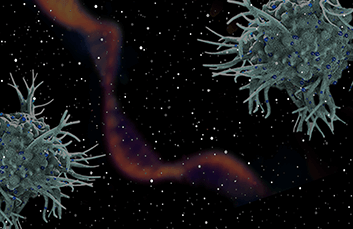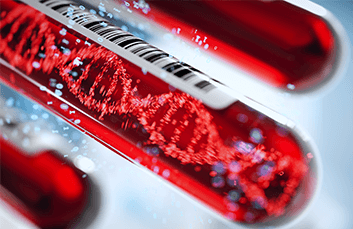Cleared assays advance liquid biopsy
Topics Featured
The goal of liquid biopsy moved closer to reality in past weeks. Liquid biopsy is the use of a bodily fluid to collect information from a distant site. Within the context of cancer, an ideal liquid biopsy would be the use of blood to generate data on a tumor without having to perform a direct biopsy of the cancerous tissues. Liquid biopsy data can come from analytes that originate from within the tumor environment such as circulating DNA, circulating RNA, proteins or even whole cells, called circulating tumor cells or CTCs. Scientists around the world are working to advance liquid biopsy because it offers great promise to help drive patient care, screen for reoccurrence or even be a first-line diagnostic.
Although discovered in 1948, the diagnostic potential of extracellular DNA and cell-free DNA (cfDNA) as a target of interest came much later. In the 1970s, researchers noted significant increases in cfDNA in the serum of patients with metastatic disease when compared to non-metastatic patients. They further tied decreases in cfDNA load to decreases in tumor size and patient pain. A great deal of impactful work has followed, showing that increased levels of both DNA and RNA in the blood serve as biomarkers in cancer and beyond.
Recently, the use of liquid biopsy for patient care has moved into a new promising era. Laboratory developed tests, or LDTs, were previously the best option for screening for actionable mutations. With the recent clearance of two assays, the Guardant360 CDx and the FoundationOne Liquid CDx, clinicians now have direct FDA-approved companion diagnostics they can use to profile a patient’s cell-free DNA and guide treatment. Perhaps most importantly, Guardant Health and Foundation Medicine have assays that are attempting to build a liquid biopsy-first mentality. This pushes the field closer to a true liquid biopsy, wherein assays strive to empower oncologists to make decisions without the need to sequence tumor tissue or have physical access to tumor sites.
Both cleared assays are companion diagnostics. When this was written, the Guardant360 CDx, which relies on blood drawn into Streck Cell-Free DNA BCT®, is approved to identify non-small cell lung cancer patients with epidermal growth factor receptor (EFGR) alterations who may benefit from Tagrisso (osimertinib). FoundationOne Liquid CDx, from Foundation Medicine, has more indications and companion assays targeting more types of cancer. In 2018, Roche finalized a merger with Foundation Medicine and currently manufactures a cfDNA tube called Cell-Free DNA Collection Tube.
There is no doubt that groundbreaking achievements, such as the clearances noted above, will continue to push liquid biopsy forward. As more assays launch and more companion diagnostics are built, the blood-first mentality will grow from a hope to standard of care. Through this growth, education and advocacy will be paramount. Key groups have formed to support this growth and address the issues of training and advocacy. The importance of these activities was cemented by a White House initiative in 2016, commonly called The Cancer Moonshot. The Cancer Moonshot was tasked with making 10 years of progress in cancer diagnostics, treatment and prevention in only five. To help meet this lofty goal, BloodPAC was formed. BloodPAC, Blood Profiling Atlas in Cancer, is a non-profit organization that brings together a diverse membership from all facets of oncology. Member organizations include leading academic research institutions, major pharmaceutical companies, critical regulatory organizations and the industry partners who support analytical processes and sample handling.
Streck is a proud member of BloodPAC and has been working with researchers to enable liquid biopsy since the launch of Cell-Free DNA BCT in 2010. In the last 10 years, Streck has provided laboratories with tens of millions of tubes, which means tens of millions of samples were protected, allowing researchers to focus on their research instead of their sample. Cell-Free DNA BCT, which recently received FDA De Novo clearance by the U.S. Food and Drug Administration when paired with the Guardant360 CDx, has quickly become the industry standard to maintain cell-free DNA samples and limit pre-analytical variation.


The Benefits of Glass BCTs

